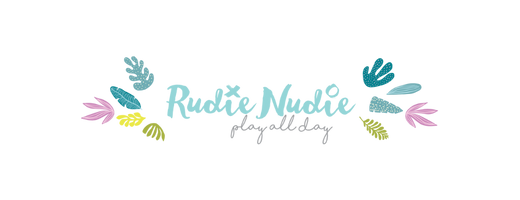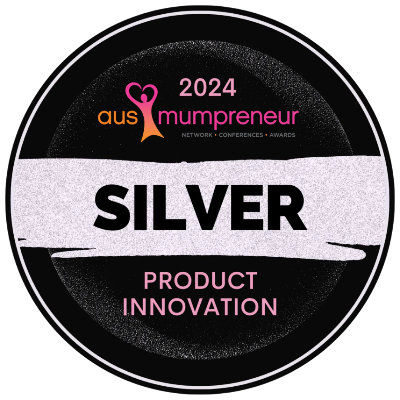For today's blog, we chat with Sarah, whose youngest daughter Elsie has Joubert Syndrome. Sarah talks us through Elsie's diagnosis, what their daily life is like, the support they have and their wins.
This blog was written to coincide with Rare Disease Day on February 28th, you can find out more here.
Tell us a bit about your family and what Elsie's diagnosis looked like.
We have three children - Austin (8), Darcy (4) and Elsie, who will be 2 in April.
Elsie absolutely adores her brothers, the wiggles, looking at herself in the mirror and making sure everyone around her notices her beautiful blue eyes and amazing smile.
At just over one week of age, Elsie was diagnosed with Joubert Syndrome.
At my 20 week ultrasound, I was given the devastating news that our baby had an ‘issue’ with her brain. We undertook an amniocentesis a couple of days later, followed by an MRI at approximately 21 weeks, as well as a consultations with a paediatric neurosurgeon. We weren’t given much certainty at this appointment but we were advised that more accurate images could be obtained from 30 weeks gestation - so we waited a very long and stressful 9 weeks.
After the 30 week MRI it was confirmed that Elsie had an occipital meningocele (a herniation of meninges through a congenital bone defect in the skull in the occipital region) but that this little pouch of fluid didn’t look to contain any brain matter. This meant that Elsie could have relatively straight forward surgery (by neurosurgery standards) to essentially drain and repair the meningocele at approximately 4 months of age. What an amazing relief that was! My husband and I went straight from that appointment to the shops to buy our very first outfit for our first baby girl!
Elsie was born via induction at 38 weeks. Her birth was the most straight forward, calm and dare I say easiest birth I have had. We finally had our little girl in our arms. During our five nights in hospital, Elsie wasn’t feeding very well and made some strange noises, however, she was checked over numerous times and given the all clear to head home.
Within an hour of getting home, I was feeding Elsie, I looked down and she was blue and limp. An ambulance took us back to hospital where we were told that babies often have these ‘dusty episodes’, however, given Elsie’s meningocele they would do another MRI - just to be safe.
The MRI showed what is known as a molar tooth symbol with regards to the shape of her cerebeller vermis (part of the brain that controls balance and coordination- relates also to breathing, eye movement etc.). The meningocele was still there, remaining unchanged, but the bigger picture had been missed. That was the moment we received Elsie’s diagnosis of Joubert Syndrome.
What does a typical day in the life look like?
A typical day involves getting my eldest off to school and then trying to balance giving Elsie the attention she needs, as well as making sure that my four year old (Darcy) is also receiving adequate attention. It’s quite the struggle, as the reality is that Elsie needs constant care and attention. She can’t crawl and so she is still dependent on us for movement.
Once Elsie has had breakfast, she has some floor time at which point in time we run through some of her exercises, as given by her physiotherapist. I try to involve Darcy as much as I can but the reality is he thinks the TV and iPad are far more exciting.
Post exercises, Elsie will generally be very fatigued, so it’s time for some wiggles and then a nap. Sleep is extremely challenging for Elsie - when she was younger she would have pauses in her breathing, which resulted in my husband and I taking it in turns holding her all night. Elsie still has contact naps, or naps in the car.
We will generally then have lunch, followed by more floor play and then pick up Austin from school. After school, the boys hang out together and often watch Elsie whilst I cook dinner, or on disaster days I tell my husband to get take away on the way home from work!
We are currently still having to hold Elsie overnight, as she bites her tongue if we aren’t there to stop her and has also become so used to cuddling us whilst she sleeps. This means either my husband or I go to bed early with Elsie, whilst the other one stays with our boys and puts them to bed.
Then there are the days we have doctors appointments, physiotherapy, occupational therapy and speech therapy. There’s generally a lot of appointments!
What support do you get, and what support do you need?
My husband (James) is really the biggest support. Whilst he works and I no longer can, we are certainly equal partners and parents. He does more than his share when it comes to housework, bed times, entertaining the boys, putting Elsie to bed and so much more. We have really become an amazing, coordinated team.
We both have a very small family, and a relatively small network of friends, so external supports are quite limited. My mum is our go to when it comes to looking after the boys when Elsie has appointments or when I need help. That being said, James and I generally tackle most things together as the reality is, looking after three children (including one with a disability) feels too great of an ask for anybody else.
In terms of external people supporting Elsie’s growth and development, we have established a really great team of healthcare professionals, in particular Elsie’s physiotherapist who is my go to and a wealth of knowledge.
Going forward, it would be amazing to be at a point where we could get some respite and help with Elsie. Whilst we would like to think we can do it all ourselves, it would be amazing to be able to have a date day or night, see a movie or do something with our boys and give them our full attention.
It would be nice if more people really understood how challenging it is to have a medically complex child. When we say no to an invitation to go out, or we leave early, it’s not because we want to, it’s because we don’t have a choice.
What's a big win you've had lately?
Elsie’s development has been very slow, so sometimes I almost forget to think of the ‘wins’ or look at her progress. However, when she learns something new, words cannot describe how excited and proud we are.
Elsie has really started to become so much more engaged lately. She has started copying actions from her favourite wiggles songs, plays peek-a-boo with her brothers and claps at her own achievements. She has become a lot more interested in toys and is working on her fine motor skills!
Her smile is definitely the biggest win every day though!
We have also been working hard on her exercises and did a mini physiotherapy intensive last year. As a result, Elsie can weight bare on her legs (with help) and take steps with assistance also.
Elsie has also recently learned how to drink out of a straw, giving herself a clap with every sip.
The next few goals are really to get Elsie to transition between positions and to learn how to chew food, so that she can experience and enjoy food like the rest of us!
February the 28th is Rare Disease Day - on this day we urge you to reach out to families you may know, and simply check in. It reminds families that they're not alone in their isolated journey.







